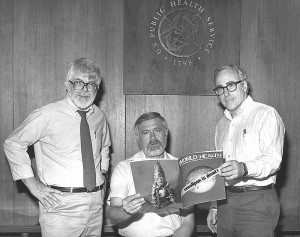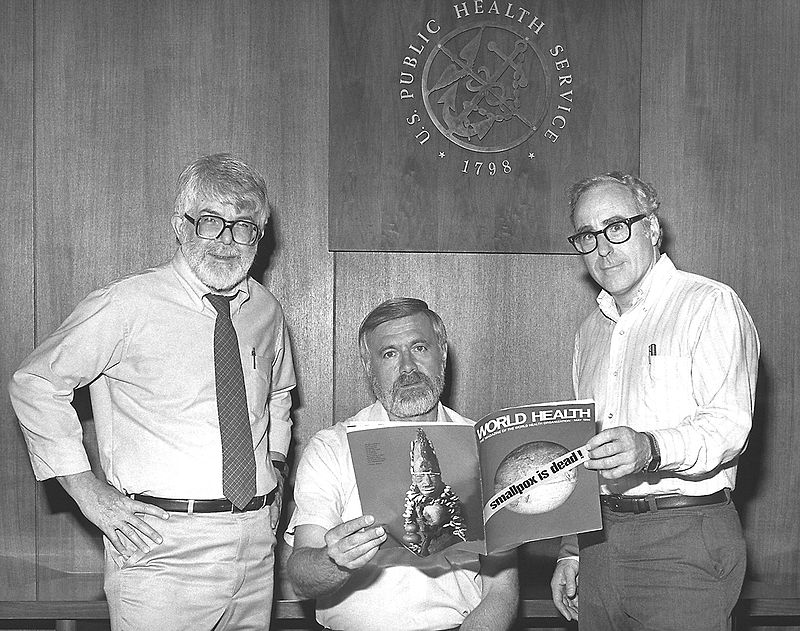by Hannah Hoag & Kasra Hassani
Health, Medicine, and Veterinary Science subject editors
After questioning more than 1,500 Canadians on their attitudes and actions toward childhood vaccination, the Angus Reid Institute published a report in February concluding that Canadians strongly support vaccination. The majority even said vaccines should be mandatory for children to attend daycare or school.
The Public Health Agency of Canada also polls Canadians on their attitudes about immunization, and on how well they’ve adhered to the vaccination schedule. Overall the figures are relatively high but, due to changes in the survey methods in 2011, they may be biased. From 2006 to 2010, children included in the poll were selected via random-digit dialling. Since 2011, however, this random selection has been replaced by the pollster only reaching out to families where the parents have agreed to be contacted.
Polls offer a lot of insight, but they’re inherently flawed. Wouldn’t it just be easier if we had real numbers?
Unfortunately, finding up-to-date vaccination statistics by region, municipality, or even school, isn’t easy–if it’s possible at all. Last year, Global News and the Vancouver Sun published measles vaccination coverage rates for schools in Toronto and BC’s Lower Mainland, respectively, using exclusive data acquired from Toronto Public Health and the BC Centre for Disease Control under the Freedom of Information Act. Both reports showed worrying rates of coverage in many schools and pointed to pockets of low vaccination rates. These reports and the accessible interactive regional maps should have been published and made accessible before the 2013 Fraser valley measles outbreak happened, not after. Nevertheless, they are now outdated.
Knowing the vaccination rate in your region, or at the school to which you’re sending your children, should be more straightforward than this. Apart from overall vaccination rates, knowledge of vaccination coverage in municipalities and schools is essential for detecting pockets of low coverage that could be the source of the next outbreak.

Three former directors of the Global Smallpox Eradication Programme read the news that smallpox had been globally eradicated, 1980. Such a day could be in the near future for measles (Image from CDC, public domain).
Only three provinces require children to have been vaccinated to enrol in school: Ontario, Manitoba and New Brunswick. The rules on which vaccines are required vary from province to province, and each has exemption clauses that allow families to opt-out of childhood vaccinations on medical, religious, or ideological grounds. This adds to the lack of information on how well our kids and communities are protected from infectious diseases.
In Toronto, a parent can find out an enormous amount of information about student attitudes towards reading, writing, and mathematics, and achievement levels for grades 3 and 6 classes at any public elementary school. But no current information about immunization status is readily available. This type of information could be crucial for the parents of kids who cannot be vaccinated for medical reasons and rely on the herd immunity of classmates to keep their children safe from measles, pertussis, and rubella.
Compare that to the United States. All states have laws requiring proof of vaccination (or the appropriate evidence of exemption) to enrol a child in school, creating school-by-school data on vaccination rates. Many states, including Washington (population 7 million) and California (population 38 million), make data on immunization rates publicly available each year. Laws require it. In February, USA Today created a searchable database of immunization rates of schools in 27 states. Just about any parent living in those states could see how their child’s school performed on vaccination status.
Or look at Cuba, which has mandatory immunization programs and teaches children (and their families) about the benefits of vaccination from the moment they start school. “Our schools need to be teaching about vaccines and immunizations and their importance to our health, starting in primary school,” Noni Macdonald, professor of paediatrics at Dalhousie University and consultant to the World Health Organization’s (WHO) committee on vaccine safety, told Maclean’s magazine.
“The numbers say it best. According to the WHO’s 2014 global summary on vaccine-preventable diseases and academic studies, Cuba has not had a single reported case of measles since 1993, nor rubella since 1989. Five cases of mumps have been reported since 2000; the last one was in 2010. And pertussis hasn’t been reported since 1994. In contrast, Canada has had 2,203 cases of measles, at least 1,529 cases of mumps, and 21,292 cases of pertussis reported since 1990.”
In the wake of the Disney measles outbreak, the Massachusetts Department of Public Health posted vaccination rates for the state’s schools, hoping to spark conversations about vaccination in those areas and schools where the rates are low.
If the Angus Reid survey found that nearly two-thirds of Canadians think vaccinations should be mandatory for school attendance, why aren’t we discussing it more seriously?
Canada could improve the immunization status of its residents by requiring proof of vaccination for school children, making these results public, and providing effective public health messaging that increases awareness and knowledge about vaccination. A centralized, up-to-date registry of vaccination coverage in Canadian schools would give the public the information they want about community-level immunization. It would help raise awareness about vaccination at the community level, and allow us to discuss mandatory vaccination in an evidence-based manner. Until then, seeing these low coverage rates might even convince those parents who are on the fence to go out and vaccinate their kids.
***
Science Borealis bloggers have also talked a lot about vaccination. Our favorite post on this topic was John Dupuis’s extensive list of resources about vaccination / anti-vaccination and why people don’t trust science.




